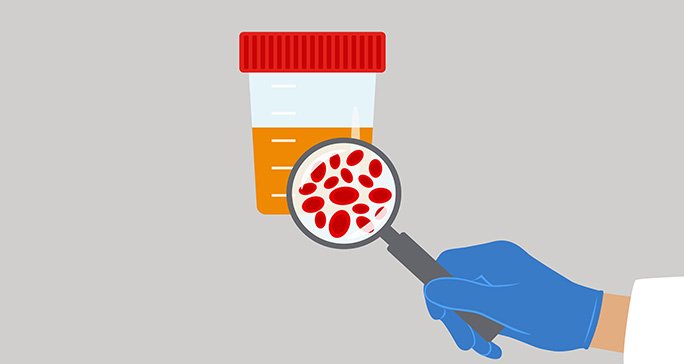- Diseases
- Acoustic Neuroma (14)
- Adrenal Gland Tumor (24)
- Anal Cancer (68)
- Anemia (2)
- Appendix Cancer (16)
- Bile Duct Cancer (26)
- Bladder Cancer (72)
- Brain Metastases (28)
- Brain Tumor (232)
- Breast Cancer (714)
- Breast Implant-Associated Anaplastic Large Cell Lymphoma (2)
- Cancer of Unknown Primary (4)
- Carcinoid Tumor (8)
- Cervical Cancer (158)
- Colon Cancer (166)
- Colorectal Cancer (116)
- Endocrine Tumor (4)
- Esophageal Cancer (44)
- Eye Cancer (36)
- Fallopian Tube Cancer (8)
- Germ Cell Tumor (4)
- Gestational Trophoblastic Disease (2)
- Head and Neck Cancer (12)
- Kidney Cancer (128)
- Leukemia (342)
- Liver Cancer (50)
- Lung Cancer (286)
- Lymphoma (278)
- Mesothelioma (14)
- Metastasis (30)
- Multiple Myeloma (100)
- Myelodysplastic Syndrome (60)
- Myeloproliferative Neoplasm (4)
- Neuroendocrine Tumors (16)
- Oral Cancer (100)
- Ovarian Cancer (172)
- Pancreatic Cancer (160)
- Parathyroid Disease (2)
- Penile Cancer (14)
- Pituitary Tumor (6)
- Prostate Cancer (146)
- Rectal Cancer (58)
- Renal Medullary Carcinoma (6)
- Salivary Gland Cancer (14)
- Sarcoma (238)
- Skin Cancer (294)
- Skull Base Tumors (56)
- Spinal Tumor (12)
- Stomach Cancer (64)
- Testicular Cancer (28)
- Throat Cancer (92)
- Thymoma (6)
- Thyroid Cancer (96)
- Tonsil Cancer (30)
- Uterine Cancer (80)
- Vaginal Cancer (16)
- Vulvar Cancer (20)
- Cancer Topic
- Adolescent and Young Adult Cancer Issues (20)
- Advance Care Planning (10)
- Biostatistics (2)
- Blood Donation (18)
- Bone Health (8)
- COVID-19 (362)
- Cancer Recurrence (120)
- Childhood Cancer Issues (120)
- Clinical Trials (630)
- Complementary Integrative Medicine (22)
- Cytogenetics (2)
- DNA Methylation (4)
- Diagnosis (232)
- Epigenetics (6)
- Fertility (62)
- Follow-up Guidelines (2)
- Health Disparities (14)
- Hereditary Cancer Syndromes (126)
- Immunology (18)
- Li-Fraumeni Syndrome (8)
- Mental Health (116)
- Molecular Diagnostics (8)
- Pain Management (62)
- Palliative Care (8)
- Pathology (10)
- Physical Therapy (18)
- Pregnancy (18)
- Prevention (912)
- Research (392)
- Second Opinion (74)
- Sexuality (16)
- Side Effects (604)
- Sleep Disorders (10)
- Stem Cell Transplantation Cellular Therapy (216)
- Support (402)
- Survivorship (320)
- Symptoms (182)
- Treatment (1786)
How to navigate cancer with a history of addiction
4 minute read | Published November 21, 2023
Medically Reviewed | Last reviewed by an MD Anderson Cancer Center medical professional on November 21, 2023
Cancer and its treatment can affect patients physically and mentally. For patients with a history of addiction, cancer can also trigger concerns about their sobriety. What if I’m prescribed opioids? What if I become stressed and have the urge to misuse substances again?
We spoke with senior social work counselor Claire Treacy and pain, palliative and addiction medicine specialist Joseph Arthur, M.D., who shared this advice for cancer patients with a history of addiction.
Identify feelings of fear and shame
Whether your substance use disorder is centered around alcohol, prescription drugs, or legal or illegal drugs, it’s important to recognize how hard you’ve worked to get sober.
“You may have gone to a treatment facility where you had to be away from loved ones to get to a point of sobriety,” says Treacy. “With a new cancer diagnosis, there’s a lot of fear of, ‘Am I going to lose this thing that I’ve worked so hard for?’”
Even individuals in long-term recovery may perceive the use of any cancer treatment drug as a potential threat to their sobriety.
“There’s also a lot of shame associated with addiction,” says Treacy. “Patients may be concerned with how their past may play out when receiving other types of medical treatment, such as opioids or even benzodiazepines, which are often prescribed to treat anxiety.”
These feelings can make it difficult to know how or when to share your history with your health care provider.
Be honest and transparent with your care team
It’s important to have honest conversations early on with your care team about past substance misuse.
“This allows the care team to design a good treatment plan specifically tailored to your unique situation,” says Arthur. “We’re here to help you. We just want to ensure that things are done safely.”
Treacy’s team can help patients who are struggling to initiate that conversation.
“You could say something like, ‘Hey, this is a part of my history. How can we keep that in mind in a way to make sure I’m maintaining my recovery and preventing relapse?’” says Treacy.
She’s even willing to be part of that conversation for her patients at MD Anderson.
“I’d ask how you feel about me being present for the discussion or helping you facilitate it, so the weight isn’t all on you,” she says. “I’m happy to be there and be an advocate and support for you during this difficult conversation.”
Normalizing substance use disorder and removing the stigma around it helps patients feel more comfortable sharing with their care team.
“We understand that substance use disorder is a chronic disease, just like any other disease,” says Arthur. “We don’t have the perception that you’ve done something wrong because you have a history of addiction.”
Connect with your support system
Connecting with your support system is one of the best ways to navigate a cancer diagnosis when you have a history of addiction.
“This could be loved ones, your recovery community or even your care team,” says Treacy. “You can combat feelings of fear and shame by being open and vulnerable, asking for support and help and being willing to lean on other people. You don’t have to do it all yourself.”
For example, if you’re concerned you may be tempted to use a medication not for its intended purpose, ask your caregiver or a loved one to administer your medication to you when you’re supposed to take it.
Caregivers can be an integral part of your support system. But it’s important for them to find a balance between helping you and taking care of themselves.
“Caregivers have to set healthy boundaries for themselves, which is figuring out what keeps them feeling safe and comfortable while also trying their best to support their loved one,” says Treacy. “Maybe that’s attending appointments with the patient and being part of those conversations, but not constantly checking up on the patient to see if they’re doing x, y and z.”
The relationship must be rooted in honesty and trust.
“As a caregiver, you have to be willing to have hard conversations with your loved one,” says Treacy. “Maybe you have concerns about them using a pain prescription, and how that will impact their recovery. Be honest about your concerns, but also ask how you can help support them during this time.”
Use available resources
If you’re a patient at MD Anderson with a history of addiction and need help managing cancer, there are several resources available to you, including:
There are also many resources in the community and online. Treacy encourages interested patients to consider any of the following:
- Al-Anon
- Alcoholics Anonymous
- Narcotics Anonymous
- SMART Recovery
- Celebrate Recovery
- Refuge Recovery World Services
Remember, you can be treated
Arthur says patients are often concerned that they can’t be treated for cancer if they have a history of addiction.
“It’s absolutely possible for patients with substance use disorder to successfully undergo cancer treatment,” says Arthur. “They should use the medications their doctors prescribe for the right reason and go to all follow-up appointments.”
Doctors closely monitor patients to make sure they’re receiving medications appropriate for their condition.
“Always share any concerns you have with your clinician,” says Arthur. “They will work with you to navigate your situation.”
Request an appointment at MD Anderson online or by calling 1-844-528-3432.

It’s absolutely possible for patients with substance use disorder to successfully undergo cancer treatment.
Joseph Arthur, M.D.
Physician





